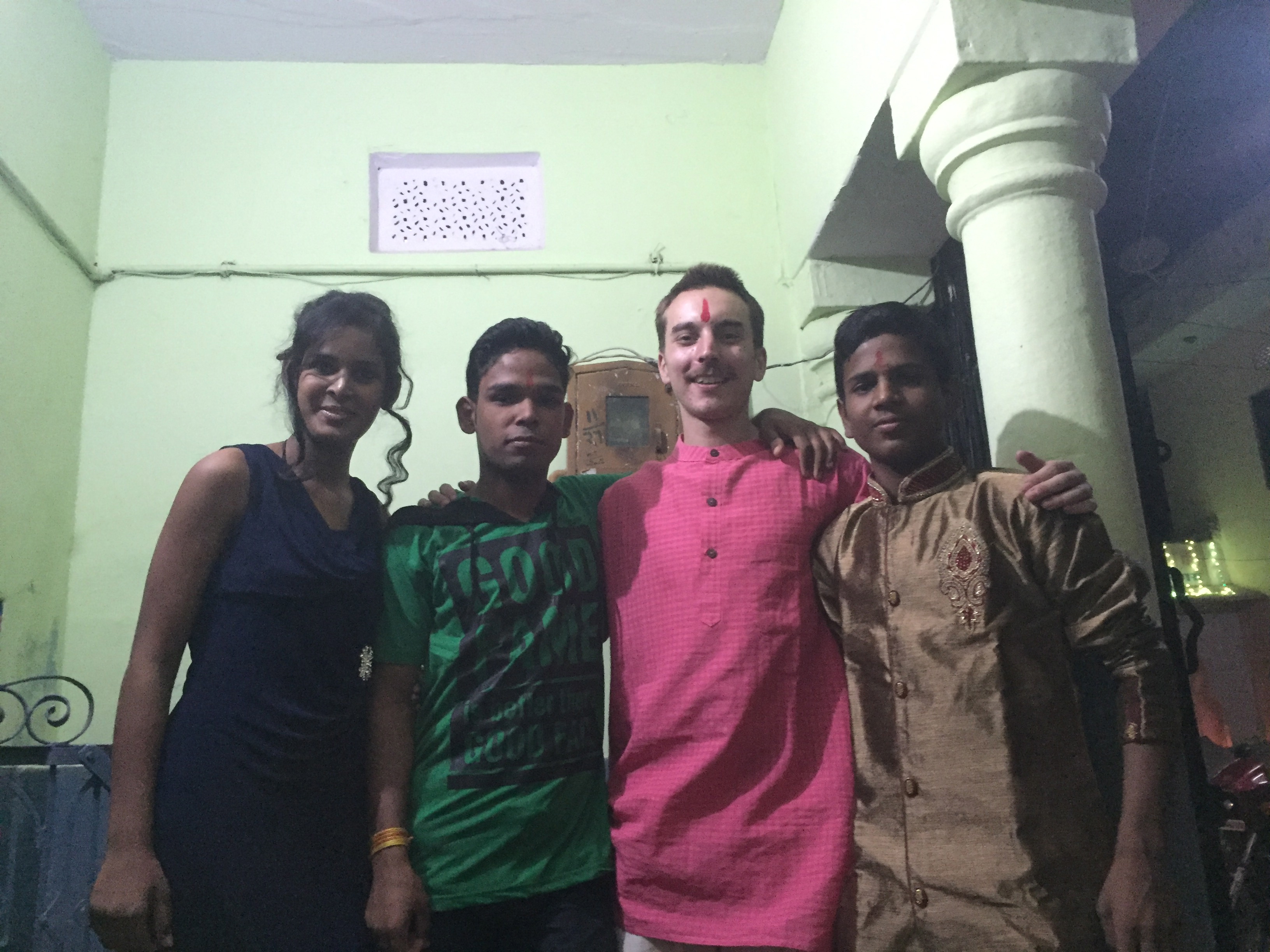
I was lucky enough to spend thanksgiving with a small group of ex-pats in Jaipur. I was craving some turkey, but more importantly, just some company to share some laughs on a holiday that celebrates friends, family, and thanksgivings. I called up a friend in Jaipur and organized a small dinner with two British guys, and three girls respectively from Zimbabwe, Spain, and Columbia. It was an educated and intellectual crowd, so everyone knew what thanksgiving was and was happy to celebrate with me. No Turkey here, but we managed to get a blend of Chinese/Indian food.
Notably, this was one of my first instances in India that where I was spending an extended period of time without any Indians. This was a group of people, all of whom work and live in Jaipur, and had keen observations of Indian culture to share. Most of our conversations surrounded differences in gender equality, censorship in the media, and talking about the difference between touring – and living – in a country like India.
During our meal, true to thanksgiving form, we each shared what we were thankful for on this special day. I was first to go, and explained that I was thankful to have celebrated a thanksgiving so far from home; for a holiday that rejoices among family, I felt delighted to be able to maintain a tradition so far away from home. Everyone appreciated the sentiment, and continued around the table.
There was short pause. Everyone was looking at one another, waiting for the next person to share their ‘thanks.’ It seemed there was an elephant in the room, as though they were all thinking the same thing – and they were.
Finally, my friend Alex blurted it out: “How about the dead bodies we’ve all seen on the side of the road? I’m thankful to have this” – he gestured with his arms to the plate of food in front of him, his friends around the table, and a comfortable apartment.
I felt disgusted with myself – it hadn’t even crossed my mind. I’m living amongst grotesque poverty every day here, and I hadn’t spent a second thinking about how fortunate I am.
I had even seen a dead body (or D.B. as we sometimes use as a euphemism) on the street just the day before. It’s something I’ve gotten used to at this point, but was surprised by my lack of acknowledgement.
In past thanksgivings, I used to actually feel bad about how easy I had it, growing up in an affluent community and welcoming home. I remember wanting to give back my first iPod that my parents gave me for my birthday. I knew many people couldn’t afford one. Even with homeless people back home in Boston – I used to glare at them, pouring my heart out, and feeling angry at the inequality.
Now, in India, I’ll be driving under a bridge where homeless people are sleeping, and there will be a government official walking around checking pulses.
You can read my post below on “Becoming Numb to Poverty,” which might help explain a bit of this ignorance on my behalf.
This topic of poverty opened up another conversation about welfare in India. To put it bluntly, there is no safety net here – no social welfare, security, or people to call when you hit rock bottom. The infrastructure that is in place – the homeless shelters and medical clinics – are overrun and outdated.
India is a lawless country.
What do I mean? You can do whatever you want, wherever you want. Nothing seems to be ‘illegal’ – if you want to drink and do drugs, go ahead. Nobody will stop you. If you need to pee, the earth is your toilet (literally anywhere. This goes for trash as well). If you want to steal, don’t get caught. There are no formal queues or lines, no rules of the road, and certainly no limit to how many people can ride in a car, tuk tuk, or on a motorcycle. Anything goes. There’s a saying in Hindi, “sub kuch milega” which means, “anything is available.” If you have the money, you can buy anything – an illicit commodity, a high score on a test, someone’s freedom, or the shirt off their back. Everything is for sale and up for negotiation – a black market for life. It’s exciting and fun as a visitor, but incredibly concerning and daunting when you consider the implications.
Here’s the point: many Indians will argue that if you end up dead on the side of the road, it’s your own issue. There is no ‘ownership’ as a society. If you’re sick, it’s up to you to pay the hospital bill. If you can’t – well, as they say…“See-ya.” The dog-eat-dog mentality is something I used to despise as a liberal American. And I still do. But, with that said, the shear magnitude of these issues is too overwhelming. People are tired of the endless cyclicality of money spent and wasted. Even for people who want to help, the fundraising and non-profit sectors in India are filled with corruption and payoffs.
Today, I’m thankful for what I have and the welfare I have as an American citizen. I’m also more perplexed as to how address these issues in India, particularly as I become more and more comfortable living in a society that disregards many in its population as a lost cause.
